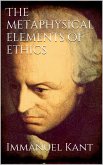In "Six Metaphysical Meditations," Renv© Descartes embarks on an introspective journey that delves into the nature of existence, knowledge, and the mind-body relationship. Written in a clear and methodical style, the book reflects Descartes' commitment to rationalism, emphasizing analytical reasoning and systematic doubt. Each meditation serves as a building block for his foundational philosophical framework, culminating in the famous cogito, 'I think, therefore I am.' This work is situated within the broader context of early modern philosophy, where scholars sought to reconcile faith and reason amid growing scientific inquiry. Renv© Descartes, often heralded as the father of modern philosophy, was influenced by his extensive education in mathematics and natural sciences. His dissatisfaction with the scholastic traditions of his time propelled him to explore radical new ideas about knowledge and perception. Descartes' unique perspective, shaped by his own existential queries and a desire for intellectual clarity, is palpably evident in this work, underscoring his legacy as a pivotal figure in philosophical thought. "Six Metaphysical Meditations" is essential reading for anyone engaged in philosophical inquiry or the history of ideas. Descartes'Äô meditations challenge readers to scrutinize their own beliefs and assumptions, ultimately guiding them toward a deeper understanding of the self and the metaphysical underpinnings of reality. This text not only informs the development of metaphysical thought but also invites ongoing reflection and dialogue.
Dieser Download kann aus rechtlichen Gründen nur mit Rechnungsadresse in A, B, BG, CY, CZ, D, DK, EW, E, FIN, F, GR, H, IRL, I, LT, L, LR, M, NL, PL, P, R, S, SLO, SK ausgeliefert werden.









